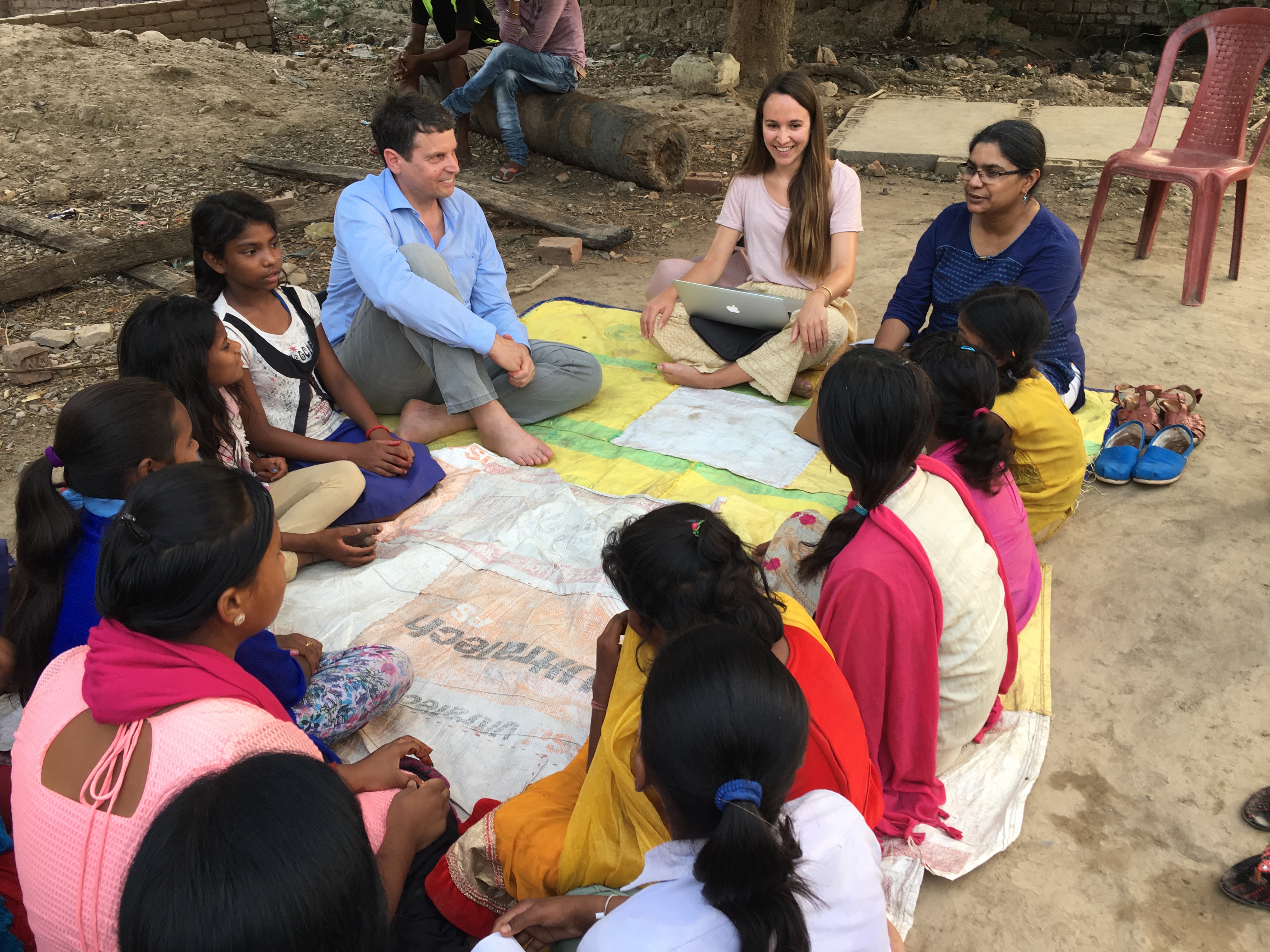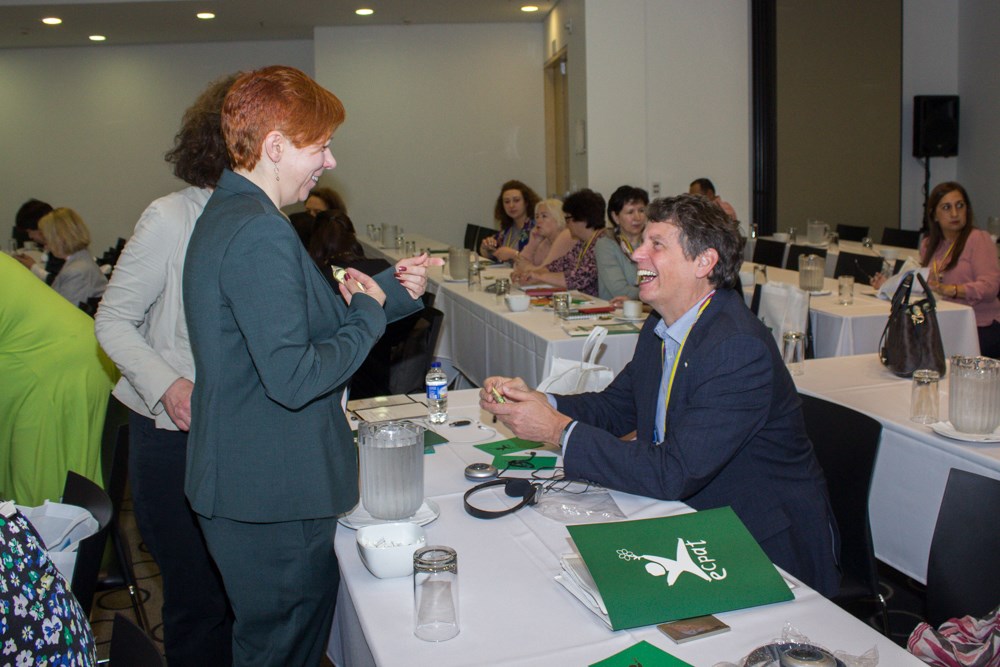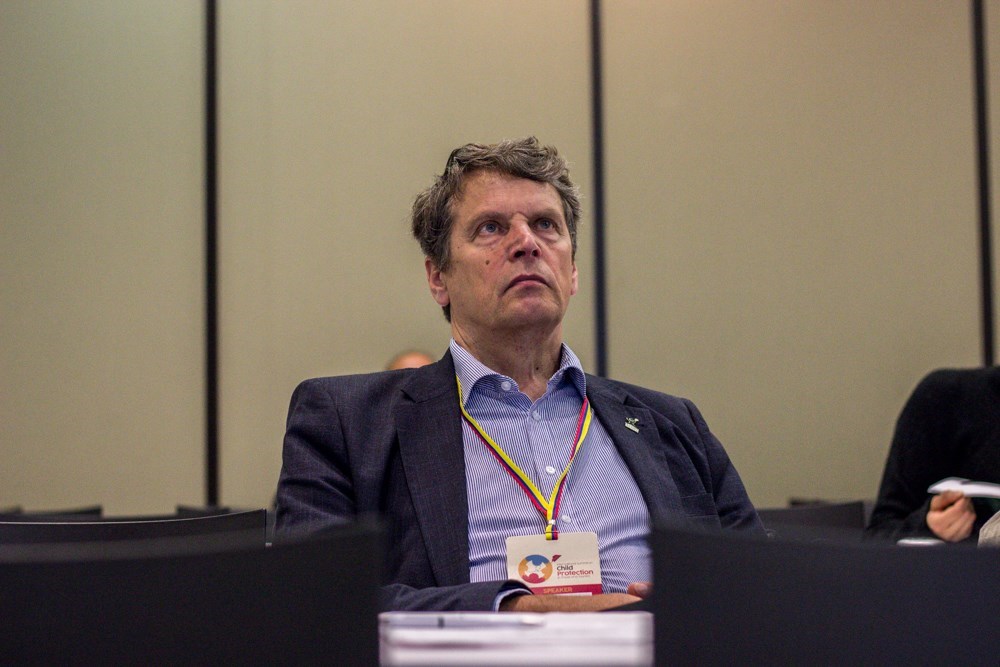"The fight against the sexual exploitation of children is not done yet"
2020 is an eventful year already, we don't need to look back on that. But more is happening: ECPAT International has been working on combating the sexual exploitation of children worldwide for 30 years! And our manager on this theme, Theo Noten, has recently started his well-deserved retirement. In the Netherlands, Defence for Children and ECPAT are one organization operating on the basis of the UN Convention on the Rights of the Child. Theo has been committed to this important topic since 1996 and we have interviewed him one last time.
What do you know about the history of ECPAT International?
“ECPAT International was founded in 1990 in Chiang Mai, in the North of Thailand. Various people involved in the Protestant Ecumenical Christian churches wanted to do something about the sexual exploitation of children in relation to tourism in Asia. So ECPAT originally stands for End Child Prostitution in Asian Tourism. After a broader global focus emerged in 1996, this became End Child Prostitution, Child Pornography And Trafficking in Children for Sexual Purposes. Several countries in Asia were involved in the establishment, as well as countries from which the tourists concerned originated. Think of the United States, but also France, England, Sweden and many more. By the end of 1995 in the Netherlands, a number of organizations came into action and formed the ECPAT Netherlands coalition The first activity consisted of being present with a stand at the Dutch Holiday Fair in 1996. This activity received lots of comments, because a holiday fair should be fun. And child sexual exploitation is no fun. And that was exactly what it was about, paying attention to the relationship between tourism and the sexual exploitation of children. ”
How did you get involved in the fight against sexual exploitation of children?
“A friend of a friend was looking for someone to help him set up the ECPAT campaign in the Netherlands. My professional history is quite diverse, I have an academic background in aquatic ecology, but most of my experience was in the field of marketing and communication in the fashion and entertainment sector. I had no knowledge of children's rights yet, but approached it as a marketing campaign. With the aim to make stakeholders aware that they have a certain responsibility and a role as a changemaker. Together we need to make a systemic change to ensure that children are better protected. ”

What is the role of ECPAT in the Netherlands?
“In the Netherlands, ECPAT has merged with the children's rights organization Defence for Children, a lobbying and advocacy organization. Our task is to demonstrate what is happening, what exactly the problem is, which children are involved, what the abusers and exploiters look like, what the legislation is in a country, what the police and judiciary do and what actions the business community undertake, especially in relation to tourism and internet communication. With this knowledge and in collaboration with experts, we approach policymakers and politicians with the message: this is the problem, this is what is lacking, this must improve and this is your role and responsibility. We are a civil society organization that signals issues, but we need government, industry and experts to act. Only together the change can be brought about that leads to sustainable improvement of the protection of children.”
What have been important moments of change?
“To start with: the first World Congress against Sexual Exploitation of Children in 1996 in Stockholm. I tried very hard to bring Dutch journalists over to attend the event, but there was little interest. The turning point was the news around the horrific Dutroux case. Suddenly journalism made the link between this child sexual abuse and murder drama and the congress. This resulted in a lot of interest for our theme. A second congress followed in 2001 in Japan and a third in Rio de Janeiro in 2008. In the Netherlands, the first congress set much in motion and in 2000 led to a first Dutch National Action Plan to tackle the sexual exploitation of children. It stated what had to change in the law, how much attention should be paid to it by the police and the judiciary, by child care providers and institutions etcetera. A second important moment was in 2007 when joint advocacy led to the Council of Europe Convention on the Protection of Children against Sexual Abuse and Sexual Exploitation. And in 2011, the EU Directive on combatting the sexual abuse and sexual exploitation of children and child pornography. That is direct law applicable to all EU Member States. As a result, the legislative and policy framework in the Netherlands and Europe has become increasingly stronger since then, as well as its implementation.”
What are the two things you are most proud of?
“ECPAT started in 1990 in six countries, now there are 102. I am proud that we also contributed from the Netherlands to expanding and strengthening the network. I am also proud of the worldwide campaign against ‘the Sexual Exploitation of Children that ECPAT developed and executed together with The Body Shop between 2007and 2012 when I was on the ECPAT International board. The campaign ran from 2009 to 2012. It was a wonderful collaboration with the people in all Body Shop stores, and led in 2011 to a petition for better protection of children with over 178,000 signatures offered in the Netherlands to the Minister of Justice. Worldwide, more than seven million signatures have been collected which were presented to the President of the UN Human Rights Council in Geneva in 2012. ”
Has the battle changed in recent years?
Unfortunately, the battle is still necessary. Legislation has improved and the responsibility countries are taking for better protection of children has increased. Also the responsibility taken, for example, within the tourism sector and the ICT sector has changed a lot in a positive sense. Unfortunately, the sexual exploitation of children remains a major problem. The enormous growth of the mobile use of the internet communication and social media partly contributes to this. Think of the distribution of images of abused children, also online. Anonymity makes sexual exploitation easier. ”
What is the effect of the covid-19 pandemic on child sexual abuse and exploitation?
"That is an interesting question. The world with the lockdowns everywhere looks so different now. The question is to what extent we as a society want to look behind people's front doors? Working together to ensure that children do not become victims of sexual abuse and exploitation is still not easy. The likelihood of abuse taking place in secret is increasing, so every effort must be made. "
How can children be better protected in this changing world?
“It means a repetition of action. Taking responsibility together for children in our own environment and linking this to international measures. We continue to lobby governmental institutions worldwide. As well as the private sector, for example tourism. We should not look away from what is happening. That is exactly what the "Don't look away" campaign is about. If you see something that indicates sexual exploitation of a child, do something and don't think: "someone else will.” The responsibility lies with all of us. We also encourage the Internet and Communication sector to take advantage of the opportunities that technology offers. Such as preventing abuse, identifying perpetrators and communicating with potential victims to raise awareness and provide the opportunity to report abuse if necessary. And lastly, I think it is important that more attention is paid to appropriate care and help for children in combination with investigating and prosecuting abusers and exploiters. In short, the cooperation between care providers and the police needs to be improved and strengthened.”

What do you think of your approaching retirement?
“My work has dominated my life, in a positive sense. I don't think I will be able to let go of it very easily. Actually, I am a sort of entrepreneur, but marketing a product that is difficult to sell. At a political level, it is considered important that something is done against sexual exploitation of children, but the money that is being spend on it is very little. Combating the sexual exploitation of children is a long-term process. One needs to hang in there, the battle is not over yet. Hopefully, I will still be there to see it all happen and maybe I will remain involved as an advisor.”


